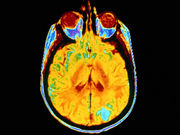Researchers find no cognitive benefits from raloxifene in women with mild to moderate dementia
THURSDAY, Nov. 5, 2015 (HealthDay News) — Raloxifene doesn’t benefit cognition in women who have mild to moderate dementia due to Alzheimer’s disease, according to a small study published online Nov. 4 in Neurology.
The research included 42 women who were recruited between 2006 and 2009 from several sites across the United States. The study participants, aged 68 to 84, all had late-onset Alzheimer’s disease that was in the mild to moderate stages. The women were randomly assigned to take raloxifene or an inactive placebo pill for a year. The researchers tested the women’s memory and other cognitive functions at the start of the study and every three months after that.
Test scores didn’t differ significantly between the two groups, the investigators found. The scores didn’t differ for memory and cognitive skills, or how well the women could perform activities of daily living such as dressing themselves and other routines.
However, because the number of women in the study was so small, with only 21 women receiving treatment with raloxifene, “this study can’t exclude a small effect,” study researcher Victor Henderson, M.D., professor of health research and policy and neurology and neurological sciences at Stanford University in California, told HealthDay. In addition, the findings don’t rule out that other drugs similar to raloxifene might have a benefit on cognition and memory, Henderson said. “The selective estrogen receptor modulators don’t all act in the same way,” he said.
Several authors disclosed financial ties to pharmaceutical companies, including Eli Lilly, which markets raloxifene and funded the study.
Copyright © 2015 HealthDay. All rights reserved.








